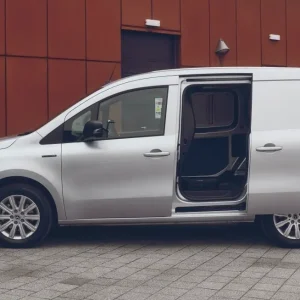A recent ‘Operational Fleet Insight Report’ produced by the AA and BT Fleet revealed that 74% of fleets containing 100-plus vehicles are now using telematics.
While traditional telematics played an important role in retrospectively flagging poor and inefficient driving styles, the technology is now evolving to provide a far more ‘real-time’ service, saving fleets money in multiple ways – one of these being by minimising fraud.
Fuel card fraud and abuse proliferates if the right controls aren’t put in place by fleets, and the misuse of fuel cards for fraudulent transactions is increasing. The good news is that by using telematics and other data, dishonest use of fuel cards can potentially be eradicated.
Fuel cards provide access to detailed spend and volume data, but what has always been more challenging is the capture of accurate mileage.
Uncovering exceptions
A telematics system, integrated with a fuel card solution, can automatically record and collate the required information, removing the risk of deliberate or accidental human error, making it possible to calculate precise mpg and identify any irregularities that point toward incidents of fuel card fraud.
The tracking tools can also validate fuel buys by ensuring that a company van was present at the point and time of purchase. If the telematics data proves the vehicle was not at the filling station, it would suggest an unauthorised vehicle has been filled up.
“Telematics technology presents no-argument facts about the performance of fleet vans, so it offers a way of investigating and proving not only fraudulent activity, but also where waste exists within an operation,” explains Steve Thomas, managing director of vehicle tracking company Ctrack.
Many companies similar to Ctrack can work with any fuel card provider, so can quickly and easily integrate its vehicle tracking software with one or more fuel management systems. “This enables fleets to have full visibility and control over how fuel is being used across an entire van operation in a single interface,” Thomas explains.
While some telematics solutions currently offer GPS-based odometer estimates, which are often impacted by any temporary loss of the GPS signal, TrackM8’s Connectedcare can provide a true odometer reading, delivering accurate information on mileage and real-time data on fuel tank levels.
Sean Morris, automotive business unit director at Trakm8, tells What Van?: “With fuel theft an increasing issue, the ability to read the actual fuel level in the tank is a real bonus.”
The company’s Connectedcare software can detect a rapid decrease in fuel levels caused by siphoning off fuel, and send an alert to the fleet manager or person responsible for company vehicles.
In addition, Trakm8 is developing the capability to link Connectedcare to a fuel card, which can inform fleet and company vehicle managers if an employee is ‘over-buying’ fuel over and above the capacity of the fuel tank.
“Fuel card fraud is a pressing concern for many businesses,” says Morris. “Trakm8 Connectedcare provides managers with actionable insights that enable them to take action before the severity and cost of the issue escalates.”
Fleet management software company Jaama has also been developing ways to help discourage and prevent fuel card fraud. Its Key2 fleet and asset management software has the ability to pull fuel card transaction information electronically and intelligently analyse the data against a range of user-configured parameters to help identify potential fraud activity.
Martin Evans, managing director at the company, says: “Fleet decision-makers using a fleet management system should not just import fuel data from fuel card providers but they should actively drill down into the data, and identify and address ‘rogue’ vehicles and/or drivers to enable financial savings to be achieved.”

Martin Evans, managing director at Jaama
(Continued from page 1) Key2 can process fuel transactions from fuel card providers as well as bunkered sites and associate transactions to the allocated driver, vehicle and cost centre at the time of the transaction.
Its functions enable it to produce exception reports, check how much fuel has been used against distance travelled and ensure that the purchase of fuel quantities greater than the vehicle’s fuel tank can be identified easily.
“The data derived from in-vehicle telemetry units and tracking systems becomes extremely powerful when augmented with fleet management software enabling automated analysis and information processing,” says Evans.
“A good system will monitor, control and highlight erroneous expenditure and provide automated checks and balances to ensure fuel expenditure is policed within predefined parameters without the requirement of human intervention to complete manual checks.”
Efficient data monitoring
One of the prerequisites to obtaining accurate mpg monitoring is ensuring that spurious mileages do not compromise the data, and Evans explains that there are validation checks within Key2 at every stage a mileage is recorded to ensure the data is accurate.
“It is vital that van operators utilise fuel management systems that can access fuel transactions online,” he notes. “Relying on paper invoices or driver receipts is a recipe for cost-control disaster. Using today’s technology, van fleet operators can put in their own rule sets to highlight data by exception so any fuel management vagaries are instantly highlighted.”
Actual fuel savings from the introduction of Key2 Vehicle Management software are different for each customer, says Evans. However, the main area of savings is in being able to identify low-mpg against expected-mpg drivers, poor-performing vehicles and outright fuel theft.
“In our experience, a customer with more than 100 vehicles stands a good chance of being the victim of some fuel theft,” he explains. “Customers have reported fuel spend reductions of up to 8% after implementation from a combination of savings in these areas.”
BP Fuel Cards’ fuel cards manager Jo McDonnell notes that the most important thing to look out for when avoiding fuel card fraud is the illegal use of lost and stolen cards. BP Fuel Cards come with advanced security measures to help prevent fraud and misuse and every card is individually protected, with a PIN that can be set or changed at any time. The fuel cards can be reported lost or stolen 24/7. Once reported the usage is immediately blocked and BP assumes liability for subsequent transactions. Additionally, most BP sites have sophisticated CCTV surveillance, which deters fraud and helps identify perpetrators should a crime occur.
“It is also imperative to look out for drivers filling up their personal vehicles with their fuel cards,” says McDonnell. “There are special alerts which monitor card use and keep track of everything including location, site type, day and time, products bought, and litres of fuel purchased. This ensures fleet managers have complete transparency.”
Telematics is crucial in protecting against fuel card fraud as it allows complete control over usage – saving time, money and resource, notes McDonnell: “For example, telematics can provide a comparison of fuel levels and vehicle location with fuel transaction history, triggering alerts of any inconsistencies.”
BP offers two telematics solutions, depending on the size of the fleet and business. The FleetMove plug-in-and-go solution is best used by SMEs, and FleetMove Pro is more suitable for larger fleets. “The plug-in-and-go option is simple to use, with no professional installation required in the vehicle, helping SMEs keep costs down,” says McDonnell.
Paul Hollick, MD at The Miles Consultancy (TMC), says that to cut down these fraudulent costs, drivers should be questioned on any anomaly – if they know they are being audited, they are less likely to take the chance and abuse their fuel card. “Each fuel transactions should be checked against the vehicle’s tank capacity – where the amount of fuel purchased exceeds the tank capacity, questions need to be asked,” says Hollick.
He also notes some simple things fleet managers should be looking out for to detect fuel card fraud, including:
- Multiple fills – more than one transaction in one day
- Small fills – Any individual purchase less than £6 suggests the fuel card may have been used for coffees/snacks
- Multi-fuel spend – Why would a driver need to purchase different fuels for the same vehicle?
- Transaction location – Fuel purchased in a different location to the vehicle (for vehicles with telematics data)
“Providing each driver with a card, as opposed to allocating a fuel card to each vehicle, also makes drivers more accountable and gives you more visibility and control over fuel spend,” says Hollick. “The important point is that someone reviews the data and does something with it – i.e. engages with employees to stop fuel card fraud.”
Analysis of the data
Ultimately, the most important point when adopting telematics to uncover this type of fraud is that someone is there to review the data and do something with it.
TMC provides a 360-degree insight into spend, taking account of the vehicle, fuel card spend, mileage and driver profile. The level and accuracy of data provides additional benefits to clients, particularly around the deployment and effectiveness of telematics. “This gives you visibility over your driver and fleet’s performance. With this information, you can optimise routes and fuel usage and improve driver behaviour and safety,” Hollick notes.
With the right information, technological innovations in telematics for fuel savings have the potential to change the way fleets work, transforming service delivery and bringing about a big shift in the mobile workforce, says Hollick.
Ultimately, Evans says fuel is one of the biggest expenses for all businesses and it is essential fleet bosses police purchasing and usage effectively to ensure tight financial control.
“Vehicles are the lifeblood of many businesses and the whole UK economy, particularly commercial vehicle fleets, but they come at a great cost. It is therefore essential that management cost controls are in place and rogue drivers and their vehicles are highlighted by exception,” he says.
Hollick agrees that combining telematics data with fuel card data enables firms to stop fuel card fraud, which reduces costs – but says using telematics data also enables businesses to make further savings and improve driver safety. “Through telematics data you can get a sense of driver behaviour – are drivers speeding, braking late, cornering hard? High-risk drivers can be identified and conversations can be had to highlight to them that they are not driving safely. Where necessary, training can also be given. Driving safely, and more efficiently, will also save costs and improve mpg overall, which are all incremental cost savers.”
Fuel card fraud prevention for SMEs
The use of fuel card fraud-prevention telematics is becoming increasingly popular with SMEs as well as big fleets too, to enable them to save costs where possible. “SMEs can benefit in exactly the same way as fleet managers, particularly if management is outsourced,” says The Miles Consultancy’s Paul Hollick. “This is because SMEs may not have the resource in-house to keep an eye on what the data highlights.”





